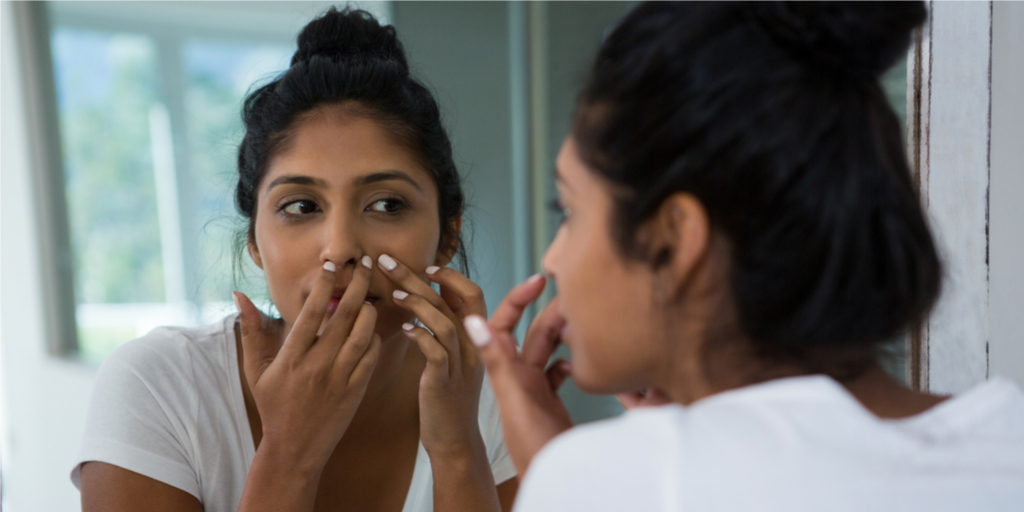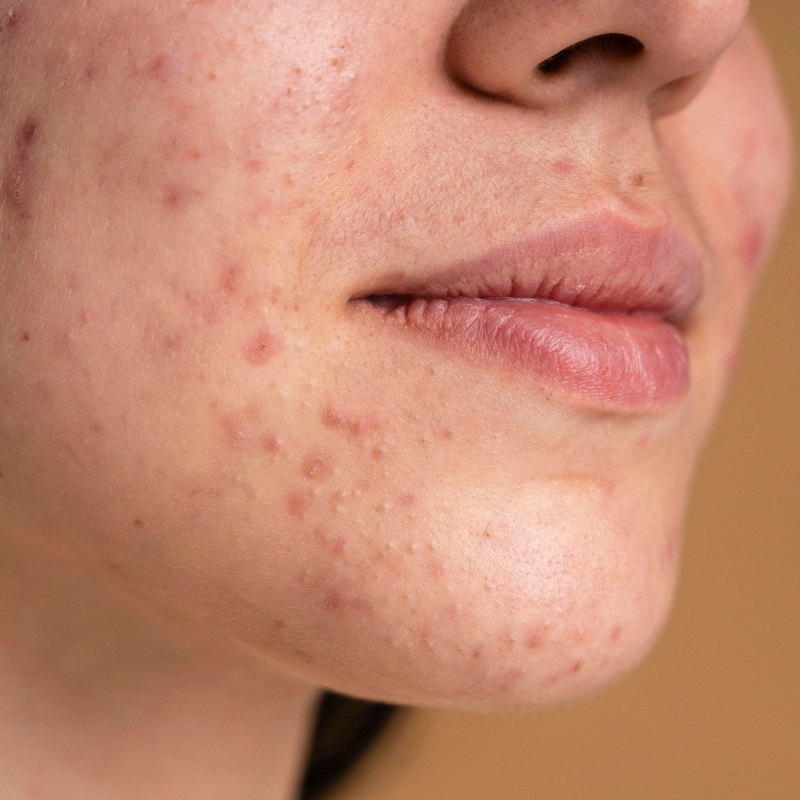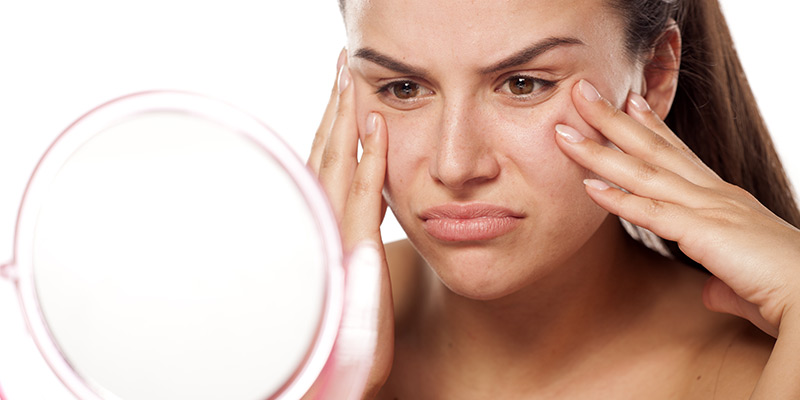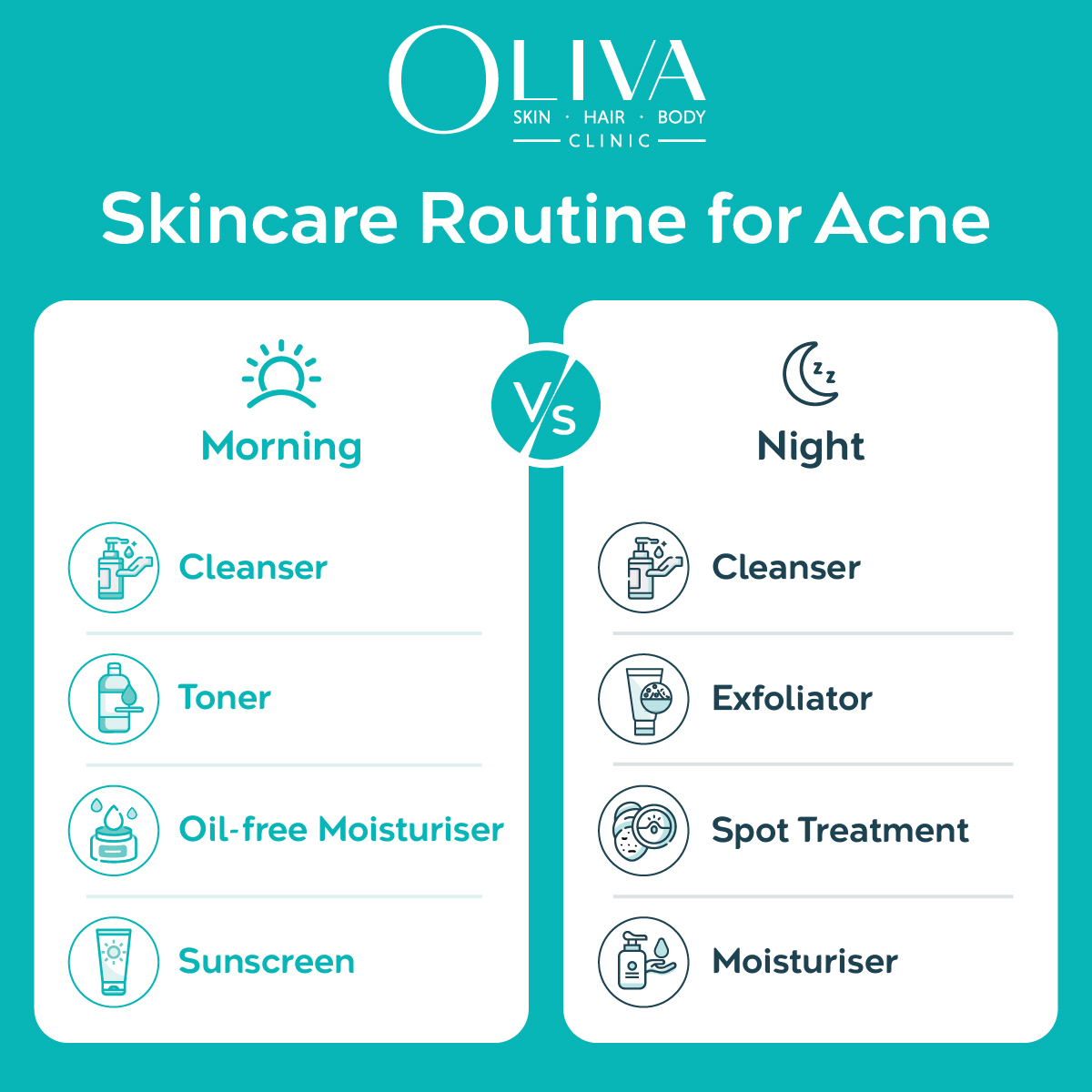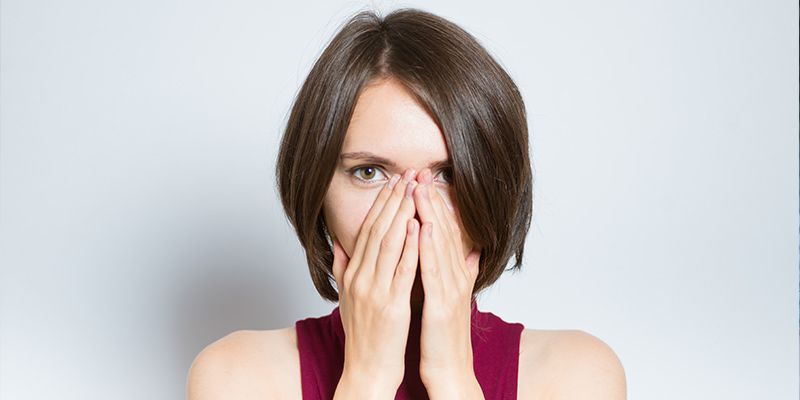In This Article
How To Get Rid Of Chest Acne?
Did you know that up to 50% of people having facial breakouts are prone to having chest acne? Moderate to severe acne increases your risk of having chest acne. Let us find out the causes, symptoms, treatments and preventive measures of chest acne right here!
In This Article
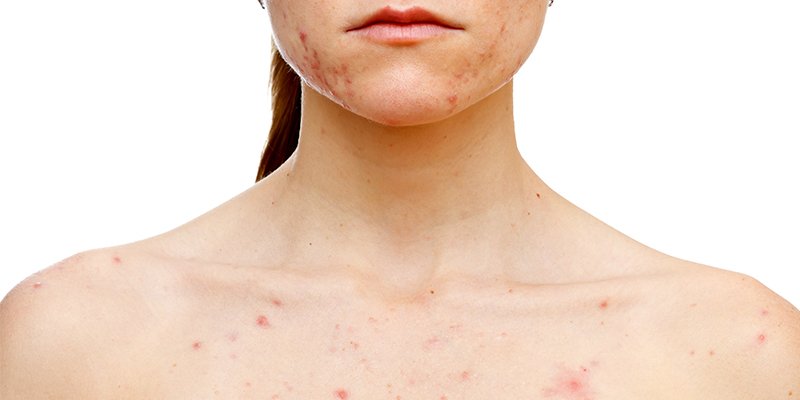
What Is Chest Acne?
Chest acne or ‘chestne’ occurs due to clogging of pores due to excess oil secretion, bacterial activity and build-up of dead cells and dirt in the truncal region of your body. Chest acne affects men and women across different age groups, including teens and adults.
What Are The Symptoms Of Chest Acne?
Chest acne may be mild, moderate to severe and may include:
- Whiteheads or closed comedones
- Blackheads or open comedones
- Papules or small, tender, red, blood-filled pimples
- Pustules or pus-filled bumps on the skin
- Cysts and nodules or deep-rooted, severely painful, and pus-filled inflammations
What Causes Pimples On Chest?
Excess sebum production results in clogged pores and is the primary reason for chest acne. Let us look at the other causes of chest acne.
- Hormonal Fluctuations: A common cause of chest acne is hormonal imbalance. Changes in hormonal levels during periods, menstruation, pregnancy and menopause or due to conditions like PCOS may increase the activity of sebaceous glands and trigger acne in women.
- High Sugar Intake: Consuming a high glycaemic diet daily may increase your insulin resistance and cause breakouts all over your body, including the chest.
- Stress: A high-stress lifestyle may increase your risk of pimples.
- Side Effects Of Medications: Certain medicines containing androgens, lithium and corticosteroids may cause chest acne as a side effect.
- Dehydration: Less fluid intake can stimulate excess oil production and lead to an increased risk of acne.
- Workouts: Acne may be a result of excess sweating during workouts.
- Prolonged Sun Exposure: It can trigger acne on the chest by stimulating excess sebum secretion.
- Friction: Ill-fitting and dirty clothes can prevent the skin from breathing, leading to clogging of pores and breakouts.
- Use Of Comedogenic Skin-Care Products: The use of harsh chemical-based skin-care and makeup products can cause acne.
- Use Of Fragrant Laundry Detergents: The harsh chemicals in your laundry detergent may irritate your skin and cause acne.
Now that you know the potential causes, it is time to check out the treatments available for reducing chest acne.
Best Treatments For Chest Acne
The treatments for chest acne include the following:
-
Benzoyl Peroxide:
This topical anti-acne application is available in different concentrations from 2.5-10%. It prevents clogging of pores and has anti-microbial properties that help fight mild acne. It may cause side effects like skin irritation and discolouration if used without medical supervision.
-
Azelaic Acid:
Its anti-microbial and skin-lightening properties are ideal for reducing moderate acne and post-inflammatory hyperpigmentation.
-
Topical Retinoids:
These Vitamin A derivatives can effectively minimise mild non-inflammatory acne. However, some topical retinoids like tretinoin, adapalene and tazarotene can help treat comedones, papules and pustules. These may cause skin dryness, irritation, peeling and photosensitivity. You must follow the doctor’s prescription on dosage and duration to minimise adverse effects.
-
Topical Antibiotics:
Topical antibiotic creams containing erythromycin and clindamycin are available to treat mild chest acne. However, regular use may cause skin irritation and severe side effects like antibiotic resistance.
-
Oral Medicines:
Oral antibiotics like tetracyclines, isotretinoin and hormonal medicines for women like oral contraceptives and spironolactone are part of the systemic therapy used to treat moderate to severe body acne, especially on the chest. It is critical to follow your doctor’s advice while taking these medications.
-
Comedone Extraction:
Dermatologists use a specialised instrument to remove the whiteheads and blackheads without causing scarring.
-
Chemical Peels:
These plant-based extracts gently exfoliate the skin under controlled conditions at a skin clinic. It helps in removing the upper damaged layer of the skin. The peeling agents that effectively reduce chest acne include salicylic acid, glycolic acid, lactic acid, and trichloroacetic acid.
To gain a clear insight into Oliva’s customized chemical peel procedure, check out this video:
-
Laser Toning:
This advanced laser treatment helps treat post-inflammatory hyperpigmentation or acne marks to restore an even skin tone. Dermatologists recommend this after minimising active acne on the chest.
Also Read: How To Get Rid Of Pimples From Arms And Shoulder?
How To Prevent Chest Acne?
Here are a few simple tips to prevent chest acne:
- Ensure you shower daily with a gentle body cleanser, especially after a workout. Also, avoid using hot water to prevent stripping your skin of its essential oil.
- Avoid using detergents with dyes and fragrances to prevent skin irritation and breakouts.
- You can use a mild body scrub weekly to remove dead cells and prevent clogging of pores.
- Wear clean, light, loose cotton clothes to allow your skin to breathe and prevent acne.
- Use non-comedogenic skin-care products based on your skin type to prevent chest acne
- Use a broad-spectrum sunscreen lotion with SPF 30 and wear protective clothing before stepping outdoors.
- Do not pick or pop your acne to eliminate it instantly, as it can cause scarring.
- Avoid experimenting with home remedies, as their safety and efficacy remain unproven. They may further irritate your skin and worsen acne. Please consult a doctor if you continue to have chest acne even after following the above preventive tips.
Also Read: Most Effective Homemade Beauty Tips For Face Pimples
Takeaway
If you note that your chest acne is recurring or worsening, consult a qualified dermatologist to prevent scarring. They can identify the type, cause and severity of your chest acne and provide a customised solution and lasting satisfaction. Keep reading for more information on skin and hair treatments!
Our certified subject matter experts do extensive research and collate facts from reputed scientific journals and international studies to create informative and engaging articles related to all your dermatology concerns. They strive to help you decipher medical jargon, distinguish fact from fiction and overcome paranoia. Our qualified medical board or expert panel goes a step further to verify these facts based on their rich academic knowledge, vast clinical experience and critical industry insights to ensure you consume only medically accurate content that empowers you to make informed decisions about your hair and skin-care treatments and weight management. Check out our Editorial policy for further details.
https://pmc.ncbi.nlm.nih.gov/articles/PMC9586532/




